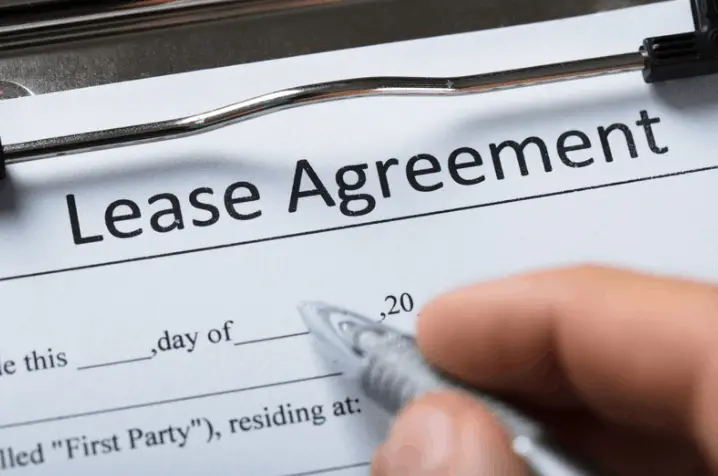
So… Life has come at you fast, and from directions, you didn’t even know exist. Perhaps you lost your job and have to move to get another one, or maybe you broke up with your significant other and now you don’t have enough money to pay the rent, or perhaps you were relocated by your job to another city and are left holding the bag with this lease.
It could be that you just want to move out early for personal reasons, or maybe the neighbors have had one too many parties and management isn’t doing anything about it, and you just can’t take it anymore!
Whatever your specific reason happens to be, you have decided to move out before your lease is actually up. You have several months left and you don’t quite know what to do about it.
It is really important that you get out of your lease, but don’t want a financial judgment on you for maybe thousands of dollars of apartment rent you are never going to lose. You also don’t want a terminated lease to be marked against your credit score either.
So what do you do to get out of your lease in the easiest, quickest, and most important, cheapest way possible? Let’s take a look at the consequences of ending your leasing term early and some things you can do to improve your position if you absolutely must carry on with this course of action.
A Lease Is A Binding Agreement
A lease is a legally binding contract between yourself and your landlord. Signing it is the same as signing any other legal document. You are bound to honor the terms of the agreement. If you don’t, there could be some pretty serious consequences in store.
There are some valid reasons for breaking a lease, such as leaving for the military, the apartment is maintaining an unsafe environment for the tenants, or there are legal issues such as domestic violence with the person you live with; however, these reasons do not make up the majority of why tenants leave early.
Consequences you could face if you break the lease early include:
– Having your landlord sue you
– A judgment placed on you for your remaining rent
– Lose your Security Deposit
– Have your Credit Score go down
– Find it harder to Rent your next place
While most states have the requirement that forces the landlord to seek a new tenant immediately for your vacated apartment, that still doesn’t directly help you out of the situation with your lease. You will still be responsible for coming to an agreement with the landlord. If you don’t, the court will make that agreement for you, most likely in favor of the landlord.
Talk To Your Landlord
– This is the absolute most important thing you can do.
You need to be upfront and honest with your landlord about the reason why you are wanting to break your lease. They are the only ones who can graciously let you get out of your lease early and without penalty.
This is why it is so important to be a great tenant for your entire stay (Link to “How To Be A Great Tenant”). If you maintain a good relationship with them, pay on time, and don’t cause any undue hassle or burdens for them, they are going to be more likely to understand your situation and have empathy for you. Remember, the landlord is a person, just like you.
Breaking a lease early during the agreement is one of the worst things you can do. At this point, the landlord has just put potentially thousands of dollars into getting that apartment ready to rent that is going to take a long time to recover; and now, more than likely, he is going to have to go through that whole process again to get it ready for the next person.
Unless the circumstances are truly extenuating, more than likely the landlord is going to insist that you pay for the rest of your lease term.
For those apartment complexes that have a 2-year lease term, this can mean many thousands of dollars.
And while the landlord must put the apartment back up for rent, which can ultimately lower the amount you have to pay, it is still going to be quite a bit of money to break a lease early into the agreement.
You are much more likely to find the landlord conducive to understanding your situation if you are nearing the end of your lease. At this point, the landlord has already collected the vast majority of the rental money he was going to get from the unit, and more times than not, they will be willing to part on friendly terms in deference to the condition the apartment is left like when you leave.
Additionally, it may not be worth the time, effort, and energy to put into coming after you for an extra month’s rent when you can simply part on good terms.
However, with many people choosing to pay via bank account or credit card, the landlord can simply charge your account that extra month’s rent or two as a fulfillment of the original contract and there won’t be much you can do about it.
Which is why it is so crucial to talk to your landlord as soon as you possibly can. The more information and time they have to prepare for your departure, and the better you go about the process of communicating with them, the higher chance you have at not being on the hook for the rest of the months you aren’t going to stay there.

How Can You Help Your Situation
– The next best thing you can do for your situation is to find a new tenant for your apartment.
The state is more than likely going to limit the amount you must pay if your landlord gets your apartment rented out to someone else. But this is going to take time. Expect at least 1 month, and up to 4 or 5 months depending on the market and geographical location for that apartment to be occupied again.
It just takes this long to do all the repairs, cleaning, and improvements to make the apartment whole again. Then it must be relisted, and the entire application process gone through before someone can move in. This all takes time, and this is all time you are going to be paying for. This is the reason why leases are signed for at least a one year term; there are a ton of costs to maintain, keep up, and repair to get an apartment ready to rent.
Additionally, while the landlord is required to find a replacement for your apartment, it isn’t going to be his number 1 priority. Why should it be when he already has a guarantee of the money in the form of the lease agreement you signed?
While the state requirement can limit the damages you owe, don’t think that this will prevent you from paying the vast majority of what you owe. The law is primarily written so the landlord isn’t collecting double rent from you and the next person at the same time.
So, to help your landlord out, find a replacement tenant for them. This removes the vast majority of the work your landlord has to do to fill the apartment again. They no longer must do the marketing costs and sit on the apartment while it is listed on the market for rent.
It is even better if you can get the replacement tenant to agree to move into your apartment AS IS. This means that the new tenant will sign a brand-new lease, but will assume the apartment without having new paint, without having the carpets cleaned, and without having major repairs done on the place. Literally, they are just replacing you in the apartment.
An incentive to get someone else to assume your lease is to offer to pay their security deposit for them. If you bring to the table another tenant for the landlord, that is going to be very attractive to them.
Ask the landlord if, when the new tenant assumes the lease, if they can roll over your security deposit to them. That way you don’t have any out of pocket costs and the new tenant doesn’t have to pay a security deposit. Many times, a landlord will do this and it will be a win-win-win for all parties involved.
Make sure that the replacement you find knows that they will be signing a new lease with the complex, that they understand what the monthly rent is, and that they will be moving into your place as is. You also need to facilitate the exchanging of contact information between the new tenant and the landlord so they can set the new terms for the lease.
You need to be doing this legwork for the landlord and the new tenant.
Subletting is also a potential solution if the apartment complex allows it. With subletting, you are essentially finding someone to assume the payments you owe for the rest of your rental term. Most times, the landlord will require that the sub-letter be added to the lease for legal and liability reasons, but they wouldn’t be signing a completely new lease, just completing the payments you have on your lease until the term is up.
Remember, the landlord is going to have to approve of the person you get to sublet your apartment, and more than likely, they are going to require that the person goes through the entire application and screening process so they can run a background and credit check as well.
So, make sure that the person you are referring to is a solid choice.
When the apartment complex allows it, subletting allows you to avoid your landlord suing you for rent and damages for breaking your lease, and at least gives you a chance to get your security deposit back at the end of your original lease.

Offers To Leave
Landlords are generally practical. Unless you have given them a reason to dislike you by being a poor tenant, more than likely, they are going to be at least a little understanding of your situation.
Doing so can actually help maximize their long-term income in the end. Make sure you realize this before you go in and talk to them.
They would much rather receive a few months’ rent than have to do all the paperwork and spend all the time to take you to court. There are easier ways to go about handling an unfortunate situation.
Many times, the landlord will give you an offer to leave and break your lease.
For instance, let’s say your lease is $1,000 a month and you have 6 months left on your lease of a 2-year lease and you have been a good tenant this entire time. Your job has transferred you to another city, and you are open and honest with the landlord as soon as you found out.
The landlord is likely to give you an offer. A common offer for something like this would be 1 or 2 month’s rent and loss of security deposit. While still not free, paying $2,000 is a far cry from having to shell out $6,000 for breaking the lease.
And just assume that virtually any time you are going to break a lease, you are going to lose your security deposit. It is essentially a given.
If you are leaving for personal reasons, be prepared to shell out some money. Remember, it isn’t cheap for a landlord to flip a unit from one tenant to another. If you are breaking for personal reasons, ask for a termination offer, try to get someone to sublet or sign a new lease, and make it as easy as you can on your landlord.
Finally, offer to pay whatever amount you finally end up agreeing on over the course of 6-12 months. This can lessen the financial impact breaking the lease has on you, as no doubt you are going to be paying for housing somewhere else as soon as you move out. Figure out a plan that works for you financially and that your landlord can live with. A landlord would rather receive some of his money than have to go through the hassle of going to court.
Remember, if your apartment complex is unsafe, you have been the victim of domestic violence, or you are joining the military, you almost always can get out of your lease early with no penalties. There are legal reasons that you can break your lease without penalty. However, if you are in one of these situations, more than likely you know and the landlord knows that these reasons are valid for breaking the lease.
If however, you are leaving for personal reasons, or you have to move because of your job, you are more than likely going to have to deal with the consequences of terminating your lease early.
Find someone else to assume your lease. Be open and honest as early as possible when you know you are going to have to leave. The landlord is the only one who can show you empathy, both emotionally and monetarily, that matter at this point. If you make the transition as easy and cheap as possible for them, the higher chance you have at minimizing your financial liability.
Lastly, make an offer to leave. Negotiate the terms with the landlord. Perhaps they will be willing to take a couple of months’ rent instead of the full amount. Make sure to get the agreement in writing before you leave to cover your own basis, but this can also be a good way to minimize your financial liability.
In the end, terminating your lease isn’t the easiest or cheapest course of action to take, but finding someone to sublet, being a good, honest tenant, and helping the landlord find another renter is going to help you immensely.
